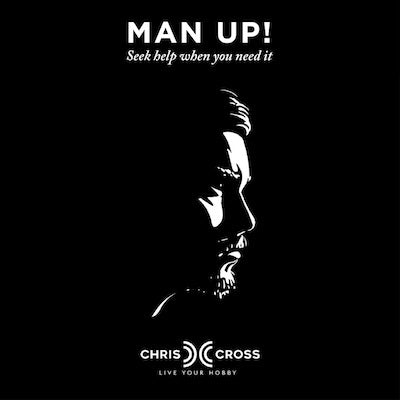
Men and Mental Health
(The following blog is written by my wife, Mina Dilip. She is a Psychologist specialising in Play Therapy. Personally, I felt it would be better if she wrote about mental health than I did because her insights and experience are far deeper.)
Browse the Internet and you will find several studies about women’s mental health. Following the passing and implementation of the Mental Health Care Act in April 2017, radical shifts were observed in the attitude of people towards mental illness and psychological issues – again, in relation to women’s mental health. While I am all for feminism, gender equality, and women’s empowerment, I also believe that it is important to look at the mental health of men as a significant issue worth consideration.
Statistics show that in India, one in every five women is battling a mental health condition. The same statistics also reveal that one in every 10 men is battling mental health issues, but these are not given the priority they deserve. Men’s mental health problems may range from anxiety and low self-esteem due to societal pressures and patriarchal norms, to alcoholism and domestic violence owing to social sanction, which normalizes such acts. The media glorifies horrendous acts like voyeurism and stalking, thereby glamorizing these behaviors, which in reality, are often indicators of severe mental illness and psychological disorders.
As a psychologist, I have met my fair share of male clients, and it is heartening to see them reaching out for help. Over the last decade, I have worked with a wide range of male mental health problems including anxiety, depression, anger issues, personality disorders, substance abuse, adultery, sexual orientation, and post-traumatic stress disorder (PTSD) due to childhood traumas to name a few.
When I looked closely at their case histories, I found a common thread, which I felt was worth sharing. At the time of experiencing severe symptoms, none of these men was actively pursuing a hobby or interest. They all reported feeling stressed because they had ‘no life outside of work and family’. As part of their therapy plan, I introduced an experimental element of suggesting that they revive their hobby or interest and start engaging in it (whatever it was) for a six-week period.
The list of their hobbies and interests included photography, hiking, cycling, painting, traveling, dance, cooking, sketching, poetry and story writing. Most of them were skeptical about the benefits of restarting something they had abandoned in their teens. With some encouragement and professional persuasion, they all agreed to give it a try.

At the end of the six-week period, all of them reported a significant decline in subjective distress and their symptoms reduced dramatically. Of course, we were continuing other therapeutic interventions, which were different for each client, but this was the one common factor, which appeared to unify them, and they all reported feeling better when they made time for a hobby or other creative pursuit.
This is not to say that having a hobby and making the time for it is the solution to all mental health problems. However, it can contribute significantly to enhancing mental health, especially in adult Indian men.
Another important age group to consider is older, retired men. I have an example of someone close to me, who experienced severe anxiety and depression following retirement. He reached out for help, took medications for a while, and felt better. However, there was still something missing. That was when he rediscovered the pleasure of traveling and writing travel blogs. As he traveled, he picked up another hobby – travel photography. Being a novice, he started to look up online tutorials and experiment with his camera, feeling better and better with each passing day. Today, he is completely symptom-free, and leading a happy, fulfilling life, pursuing his hobbies and enjoying his sunset years.
I would like to encourage everyone out there, men and women alike, to have a hobby outside of work and family, and to pursue it with a passion. No hobby is a waste of time. On the contrary, it is enriching and fulfilling, in addition to having the power of improving mental health and emotional wellness. As I write this article, I am indulging in my own hobby – writing. I make sure that I write something every week. It keeps the creative juices flowing, and also motivates me to do better at work.
So, what are you waiting for? Dust off those cobwebs and rekindle your hobby! And know that you are doing yourself a big favor, as you are keeping yourself mentally and psychologically fit by doing so.
- Authored by:
Mina Dilip, M. Sc. (Psych), Dip (SAC, UK) Child Psychology, Level 4, Trainee Therapeutic Play Practitioner, PTUK.



Laisser un commentaire
Ce site est protégé par hCaptcha, et la Politique de confidentialité et les Conditions de service de hCaptcha s’appliquent.